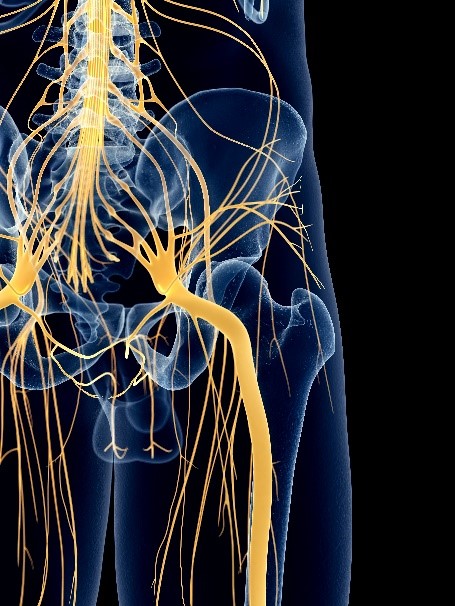The Eat-Lancet Report could help solve the UK’s food security strategy in the wake of global warming.

The Eat-Lancet report which was published in January this year could provide a framework for our national diet. As a country, at government level, we have begun to assess our food security in the wake of a changing climate. We live in times of complete abundance when supermarkets provide cheap food in quantity but this cannot last for forever.
In the Sunday Times this week there was a very interesting short article on Henry Dimbleby. Why would we want to know more about him? He is of course the son of the broadcaster David Dimbleby and one of the founders of the restaurant chain ‘Leon’ and co-author of ‘The School Food Plan’ published in 2013. The ‘Leon’ restaurant chain was founded in 2004 along with John Vincent and chef Allegra McEvedy. It has become one of the fastest growing restaurant brands in the UK, taking advantage of the vegan and healthy eating zeitgeist. So, he knows a thing or two about food! What makes him interesting for us is that he has also just been appointed by the government to lead a review that will give us a national food strategy going forward into future and this will be published in summer 2020.
Michael Gove described this as a “once-in-a-generation” opportunity to cultivate a stronger food system. “Leaving the EU is a great opportunity for British farmers and food producers,” he said. “But with an expanding population the urgent threat of climate change and rising levels of diet-related disease we face many challenges too.” The problem with these kinds of stark warnings is that there is a tendency to switch off unless danger is imminent! In the west, our sense of urgency is understandably dulled by the sheer abundance of food.
The review will be the first significant assessment of the British food system since the Second World War. No part of our economy matters more than food. We cannot afford to ignore new challenges to food security. The world’s population is growing, with mass migration to cities, resource competition intensifying between nations, huge stress on water supplies and climate change altering weather. Henry Dimbleby himself comments that the biggest threat we face in the UK is ‘catastrophic climate change’ and that in order to face this we need a ‘fourth agricultural revolution’.
But how might this revolution happen?
What does the Eat-Lancet Report Recommend?
The chances are that what we will soon eat will be loosely based on a report called the Eat-Lancet which was published in January this year. This ‘planetary health’ diet is largely plant-based and allows an average of 2,500 calories a day. It allows, for instance, one beef burger and two servings of fish a week, but most protein comes from pulses and nuts. A glass of milk a day, or some cheese or butter, fits within the guidelines, as does an egg or two a week. Half of each plate of food under the diet is vegetables and fruit, and a third is wholegrain cereals. Globally, the diet requires red meat and sugar consumption to be cut by half, while vegetables, fruit, pulses and nuts must double! In specific countries and cultures these changes will be very tough. All we need to do is look at the figures! North Americans are required to eat 84% less red meat but six times more beans and lentils. For Europeans, we are required to eat 77% less red meat and 15 times more nuts and seeds meets the guidelines (I can already hear people yawning!).
This sounds like a huge change for us in the UK (and US) but the amount of red meat suggested by the Eat-Lancet report is very much in line with what many parts of the world currently consume as part of their diet (we just eat a lot of it!). Put another way if everyone else in the world ate like us agriculture would be in complete meltdown! The science behind this Eat-Lancet report however does speak for itself. Marco Springmann at Oxford University was involved in the report. He says “the planetary health diet is based on really hard epidemiological evidence, where researchers followed large cohorts of people for decades. It so happens that if you put all that evidence together you get a diet that looks similar to some of the healthiest diets that exist in the real world.”

The Report Balances Optimal Nutrition without Promoting Environmental Degradation
This is the first science-based diet that actually succeeds in balancing an optimal diet for our health, without perpetuating environmental degradation and one that could conceivable feed 10 billion people by the year 2050. It would require huge cuts in red meat-eating in western countries, as we have suggested, and some radical changes across the world. It was devised by some of the world’s leading scientists who formed a ‘think tank’ with the goal of feeding an expanding global population while addressing the main issues in agriculture.
One of the key issues in agriculture is of course livestock. Livestock farming globally is a major contributor to biodiversity loss, as forests and wild countryside are given over to agricultural land to grow animal feed. And the draining of rivers and lakes to irrigate land used to grow corn and other grains used as animal feed is already having a substantial impact on water resources.

According to the UN Food and Agriculture Organisation an estimated 820 million people were undernourished last year while a third of all people were vitamin deficient. Meanwhile, at the other end of the spectrum, diseases of affluence imply that two billion of us were classified as overweight and 600 million as obese. It’s also estimated that 1bn tonnes of food are wasted every year – a third of the total produced. There have been many academic reports concerning food consumption but relatively the Eat-Lancet report is much more robust and far-reaching.
The Eat-Lancet Report has been Controversial
Unfortunately, the report has not obviously been welcomed by everyone. Some observers suggest, not unreasonably, that such a diet is expensive even in the UK, notwithstanding developing countries. Much of this criticism was generated from the governments ‘EatWell’ campaign which was published in March 2016. Almost 4 million children in the UK live in households that would struggle to afford to buy enough fruit, vegetables, fish and other healthy foods to meet these nutrition guidelines according to one study published by the Food Foundation (this is an independent think-tank in the UK) . “The government’s measurement of household income highlights the fact that millions of families in the UK cannot afford to eat in line with the government’s own dietary guidance,” said Anna Taylor, the executive director of the Food Foundation. “It’s crucial that a coordinated cross-government effort develops policy that accounts for the cost of its recommended diet and creates a food system that does not consign those on lower incomes to the risk of diet related illness.”
The National Farmers’ Union in the UK argued that the Eat-Lancet Commission report was a global report that ignored regional differences. “For example,” it said, “65% of UK farmland is highly suitable for grass production over other crops, so the UK is well placed to produce food from sustainable livestock grazing systems. Also, grassland is a very good store of carbon, helping to mitigate the effects of climate change.” To add some reasonable perspective to the whole affair Dr Tara Garnett (one of the contributors to the Eat-Lancet report) comments “There is no way we all agree on everything that was written in that report,” she says. “I certainly have reservations about aspects of it. But it was a useful piece of work. There’s nothing new in there really. But it puts it all in one place. The fundamental message is that we’re not going to address our environmental problems unless we address the problems caused by the food system and we’re not going to address the problems caused by the food system unless we shift the way we eat collectively and globally.”

Although we take it for granted, we are in general incredibly lucky. We now have an abundant choice of safe and reasonably priced food, creating millions of jobs and providing us with an ease of consumption unimaginable to our grandparents’ generation. Globally, we are the first generation more likely to die as a result of lifestyle choices than infectious disease. Diabetes, cardiac disease and other obesity-related conditions are costing the NHS billions and drastically harming the lives of millions. But we also have a responsibility to our next generation in terms of restoring and improving the environment we live in because all of this has come at a cost. I would personally like to provide a robust future for my son and part of that is a sustainable system agricultural sector. We have a moral, as well as practical, responsibility to consider. The is the purpose of the National Food Strategy which will help us achieve this vision.






